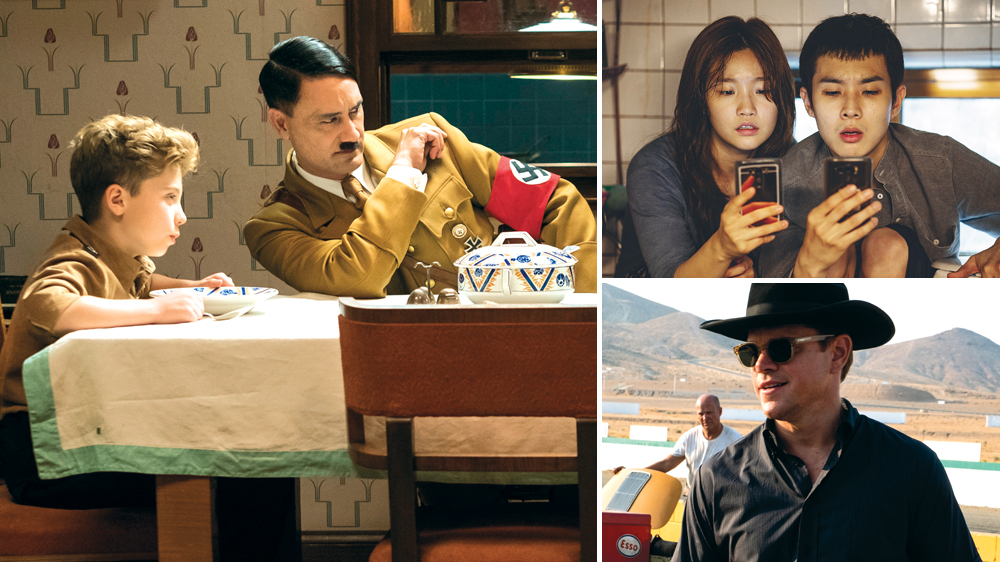Oscar-Nominated Editors Helped Create a Wide Range of Worlds and Tones
By Jazz Tangcay
LOS ANGELES (Variety.com) – Parasite’s” historic Oscar nominations haul includes editor Yang Jinmo, who won for dramatic feature at the Jan. 17 American Cinema Editors Eddie Awards. Yang’s win for “Parasite” was the first time a film in a foreign language won. Historically, in 11 of the past 15 years, the winner of the dramatic feature ACE award has gone on to win the Oscar for editing.
Here’s a rundown of the Academy Award nominations:
“Ford v Ferrari”
Editors Michael McCusker and Andrew Buckland struck a balance between the friendship of Ken Miles (Christian Bale) and Carroll Shelby (Matt Damon) and the actual racing to tell the story.
This is Buckland’s first Oscar nomination and McCusker’s second.
“The Irishman”
“The Irishman” was a shift for Thelma Schoonmaker. Not only did the legendary editor and frequent Martin Scorsese collaborator have to weave a narrative that skips back and forth in time across five decades, Schoonmaker had to take a quiet approach to the editing. That meant there was no amplifying of sounds and enhancing footsteps — Scorsese wanted a simple approach. “Marty wouldn’t allow any of it,” Schoonmaker says. A scene that posed a dilemma for Schoonmaker was the montage to reflect how many times Robert De Niro’s character had killed. “We started off showing it traditionally, but then we did jump cuts and played around with it a lot,” Schoonmaker says before settling on the montage to show a passing of time and the vast number of killings he had committed.
Schoonmaker has eight Oscar nominations and three wins.
“Jojo Rabbit”
Director Taika Waititi tapped his go-to editor Tom Eagles to ensure “Jojo Rabbit’s” tone was right from the beginning.
As the film opens, black-and-white archival footage of Nazi propaganda was used to show crowds screaming and cheering for Adolf Hitler. Playing over the credits is the Beatles singing “I Want to Hold Your Hand” in German. With that opening setting up the tone for Waititi, the other important element was time. The film runs at a tight 108 minutes. It was just enough time to tell the story of a young boy whose world view changes completely, as does the world around him.
This is Eagles first Oscar nomination.
“Joker”
First-time Oscar nominee Jeff Groth switched between close-ups and wider shots, one to show the emotional pain of Joaquin Phoenix’s Arthur Fleck, while the other forced the audience to observe the action from a distance. For a lot of the time, Groth just “let things play out,” he says of the long takes.
Groth, like director Todd Phillips and cinematographer Lawrence Sher, all worked to preserve Phoenix’s Oscar-nominated performance. “Joaquin has an amazing ability to transform his face and transform his body — the transformation happened in just about every shot in the scene. We tried not to overly manipulate some of that and would even go back in and kind of remove cuts from certain things just to make sure that you could witness what Joaquin was doing,” Groth says.
This is Groth’s first Oscar nomination.
“Parasite”
Director Bong Joon Ho created storyboards with editing in mind — shooting only what was necessary. Together, Bong and Yang discussed the rhythm and pacing of “Parasite” during pre-production.
Yang’s objective was to create tension in the editing, and no scene was more important than the birthday party. “It was the most difficult to edit,” Yang says. In the scene, small incidents lead up to the climax, and for Yang, it was imperative to show how Ki-taek (Song Kang-ho) gets to the emotional moment that leads to tragedy.
“Bong and I went through so many takes and versions. We dissected it and looked at the expressions Ki-taek was making,” Yang says. “We had to sell that emotion and where he was coming from. It was crucial and the entire film hinges on that very moment.”
This is Yang’s first Oscar nomination.

